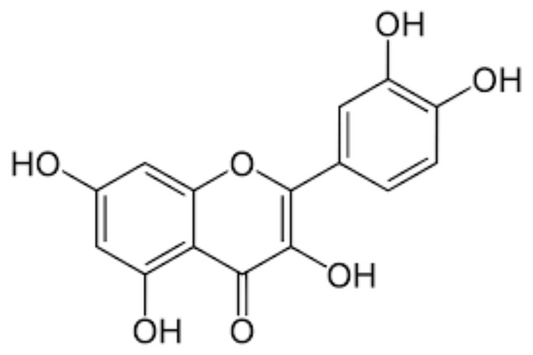Research Consensus: Essential mineral with vast evidence supporting its numerous physiological roles.
Benefit Tips
Magnesium citrate is a commonly used form of magnesium in dietary supplements. Magnesium is an essential mineral involved in over 300 enzyme reactions in the body.
- Magnesium supplementation has been shown to improve insomnia symptoms, with some studies showing up to a 58% improvement in insomnia severity index scores.
- Constipation Relief: Magnesium citrate acts as an osmotic laxative. It's frequently used for bowel preparation before surgeries. A significant percentage of individuals (often over 85%) experience bowel movements within 6 hours after taking magnesium citrate as a laxative.
- Bone Health: Magnesium plays a crucial role in bone formation and influences the activity of osteoblasts and osteoclasts. Adequate magnesium intake is associated with a higher bone mineral density. In populations with lower magnesium intakes, there's an up to 22% greater risk of osteoporosis.
-
Migraine Prevention: Some studies have shown that magnesium supplementation
can reduce the frequency of migraines. In trials, patients receiving magnesium experienced a 41.6% reduction in migraines compared to a 15.8% reduction in the placebo group. - Cardiovascular Health: Adequate magnesium intake is associated with a reduced risk of hypertension. People who consume sufficient magnesium have a 15% lower risk of developing high blood pressure compared to those with inadequate intakes.
- Blood Sugar Regulation: Magnesium plays a role in glucose and insulin metabolism. In some studies, individuals with higher magnesium intake have a 17% lower risk of developing type 2 diabetes.
- Mood and Anxiety: Magnesium may have mood-stabilizing properties. Supplementation has been associated with a significant reduction in symptoms of depression and anxiety in some studies, with effects noticeable within two weeks in certain cases.
-
Muscle Function: Magnesium is essential for muscle contraction and relaxation. People with adequate magnesium levels might experience less muscle cramps and spasms, although precise percentages can vary based
on individual conditions and magnesium deficiency severity. - Sleep Quality: Magnesium can influence sleep regulation. Some studies show that magnesium supplementation can improve sleep efficiency, sleep time, and reduce insomnia symptoms. In one study, elderly individuals taking magnesium supplements experienced a 17% improvement in sleep quality.
Magnesium Citrate: The Surprising Anti-Aging Compound You Need to Know About!
Magnesium is an essential mineral that plays a crucial role in the human body. It is responsible for many biochemical reactions in the body, making it one of the most important minerals for overall health and well-being. Magnesium is involved in everything from the metabolism of carbohydrates and fats for energy, the synthesis of nucleotides and DNA, cell signaling, and reactions involving a number of the body's antioxidant defense systems. Despite its importance, many people are deficient in magnesium, and this deficiency may contribute to a range of health conditions, including hypertension, headaches, muscle tension, depression, and osteoporosis.1
Magnesium citrate is a form of magnesium that is often used to supplement magnesium intake. It is a combination of magnesium and citric acid, and it is known for its high bioavailability, meaning that the body can easily absorb and utilize the magnesium.2 Magnesium citrate is commonly used to support healthy digestion, as it can help to relax the muscles in the digestive tract, which can help to alleviate constipation and other digestive issues.
One of the key roles of magnesium in anti-aging is its ability to support bone health. Magnesium is essential for the development and maintenance of healthy bones, and it works in conjunction with other minerals like calcium and vitamin D to keep bones strong and resilient. Magnesium supplementation has been shown to help prevent and treat osteoporosis, a condition that is characterized by weak and brittle bones that are prone to fractures.3 Osteoporosis is a major health concern for older adults, particularly women, and it can significantly impact quality of life. By supplementing with magnesium citrate, older adults can help to support their bone health and reduce the risk of fractures and other bone-related issues.
Another way that magnesium citrate may help to slow the aging process is by supporting cardiovascular health. Magnesium plays a critical role in regulating heart rhythm and blood pressure, and deficiency in this mineral is linked to an increased risk of heart disease.4 By supplementing with magnesium citrate, individuals may be able to support healthy blood pressure and reduce their risk of developing heart disease, which is one of the leading causes of death in older adults.
In addition to its role in bone and cardiovascular health, magnesium citrate may also have cognitive benefits. Research has linked magnesium deficiency to depression, anxiety, and other mood disorders, and some studies have suggested that magnesium supplementation may help to improve mood and reduce symptoms of anxiety and depression.5-9 Magnesium citrate may also help to support brain health and cognitive function, as it is involved in the synthesis and release of neurotransmitters like serotonin and dopamine.10,11 These neurotransmitters play a critical role in regulating mood, attention, and motivation, and deficiency in magnesium may contribute to cognitive decline and other brain-related issues.
Finally, magnesium may also play a role in reducing inflammation and oxidative stress, two processes that are known to contribute to aging and age-related diseases.12 Magnesium is a natural anti-inflammatory and antioxidant, and it can help to reduce the production of reactive oxygen species (ROS) and other harmful molecules that can damage cells and tissues. By reducing inflammation and oxidative stress, magnesium may help to slow the aging process and reduce the risk of chronic diseases like cancer, diabetes, and Alzheimer's disease.
In conclusion, magnesium is an important mineral that plays a critical role in overall health and well-being. Its ability to support bone health, cardiovascular health, cognitive function, and reduce inflammation and oxidative stress make it a valuable supplement for individuals looking to slow the aging process and reduce the risk of age-related diseases.
References:
- Pelczyńska M, Moszak M, Bogdański P. The role of magnesium in the pathogenesis of metabolic disorders. Nutrients. 2022 Apr 20;14(9):1714.
- Kappeler D, Heimbeck I, Herpich C, Naue N, Höfler J, Timmer W, Michalke B. Higher bioavailability of magnesium citrate as compared to magnesium oxide shown by evaluation of urinary excretion and serum levels after single‐dose administration in a randomized cross‐over study. BMC Nutr. 2017; 3:7.
- Groenendijk I, van Delft M, Versloot P, van Loon LJ, de Groot LC. Impact of magnesium on bone health in older adults: A systematic review and meta-analysis. Bone. 2022 Jan 1;154:116233.
- Wu, J.; Xun, P.; Tang, Q.; Cai, W.; He, K. Circulating Magnesium Levels and Incidence of Coronary Heart Diseases, Hypertension, and Type 2 Diabetes Mellitus: A Meta-Analysis of Prospective Cohort Studies. Nutr. J. 2017, 16, 60
- Cheungpasitporn W., Thongprayoon C., Mao M.A., Srivali N., Ungprasert P., Varothai N., Sanguankeo A., Kittanamongkolchai W., Erickson S.B. Hypomagnesaemia linked to depression: A systematic review and meta-analysis. Intern. Med. J. 2015;45:436–440
- Młyniec K., Gaweł M., Doboszewska U., Starowicz G., Nowak G. The Role of Elements in Anxiety. Vitam. Horm. 2017;103:295–326.
- Phelan D., Molero P., Martínez-González M.A., Molendijk M. Magnesium and mood disorders: Systematic review and meta-analysis. BJPsych Open. 2018;4:167–179
- Abiri B, Sarbakhsh P, Vafa M. Randomized study of the effects of vitamin D and/or magnesium supplementation on mood, serum levels of BDNF, inflammation, and SIRT1 in obese women with mild to moderate depressive symptoms. Nutritional neuroscience. 2022 Oct 3;25(10):2123-35.
- Botturi A, Ciappolino V, Delvecchio G, Boscutti A, Viscardi B, Brambilla P. The Role and the Effect of Magnesium in Mental Disorders: A Systematic Review. Nutrients. 2020 Jun 3;12(6):1661.
- Li W., Yu J., Liu Y., Huang X., Abumaria N., Zhu Y., Huang X., Xiong W., Ren C., Liu X.G., et al. Elevation of brain magnesium prevents synaptic loss and reverses cognitive deficits in Alzheimer’s disease mouse model. Mol. Brain. 2014;7:1–20.
- Xu Z.P., Li L., Bao J., Wang Z.H., Zeng J., Liu E.J., Li X.G., Huang R.X., Gao D., Li M.Z., et al. Magnesium protects cognitive functions and synaptic plasticity in streptozotocin-induced sporadic Alzheimer’s model. PLoS ONE.
- Veronese N, Pizzol D, Smith L, Dominguez LJ, Barbagallo M. Effect of magnesium supplementation on inflammatory parameters: a meta-analysis of randomized controlled trials. Nutrients. 2022 Feb 5;14(3):679.




